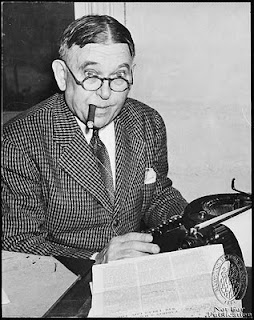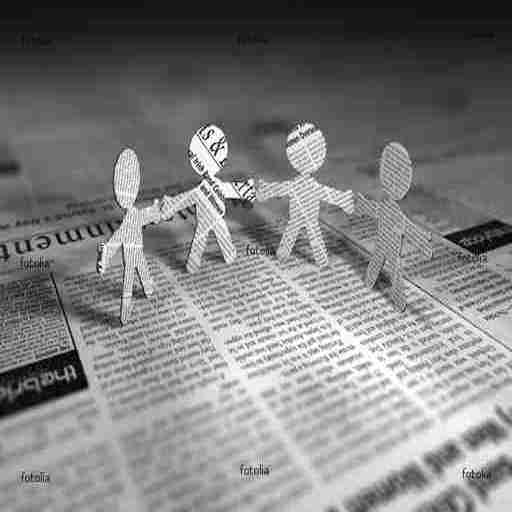The View from Afar
Writings by retired newspaper publisher Stephen Waters

The fabric of society: 14. Individuals prepare for the future
fas14of14 Rome (NY) Sentinel 2015-10-16 October 16, 2015
[Article 14 of 14: The previous article examined one’s place in society.]
Individuals today have the advantage of a world of experience that those in the past did not have. That makes it easier to avoid the tar pits others in Philosophy attempted to explore and got caught in. Our predecessors did heavy lifting, but we have incentive others before did not have — the need to act before civil society is trashed. It is too dangerous to be ignorant about judgment in our age. As powerful weapons become more readily available, this becomes a race between civilization and Armageddon.
Mother Nature doesn’t care if we succeed, but we do. We care for ourselves and for our children. Nor can we put off our work, now that isolation no longer protects us. As Jacob Bronowski noted, science has put the power of knowledge in the hands of anyone who cares to learn, so that no longer will a strong box protect our wealth or barred door protect our families. [1] We are in a race with no guarantee civilization will win. The competition is to inoculate ourselves to recognize and defend against others who would destroy rather than build society; a race to expand civilization with an accessible, compelling message others might decide to value and adopt as their own.
Happily, civilization has a better chance today than ever before, because all it takes is a change of mind. It took only a change of mind for villagers to see that the emperor, parading in what he and his officials supposed was finery, wore no clothes.
Adrift on a communal sea of individual ideas clawing at each other to grow and survive, ideas will be lost, and many should be. The way forward is to sift down to the useful because truth is not so easy to prove. The purpose of logic and rhetoric, the way it used to be taught, is to serve as a sieve to sort out what works from what has not in the past and is unlikely to work in the future.
Viral ideas transmit experience that tempers wisdom and culture. The viral nature of ideas is why some pre-computer Balkan states registered typewriters and why the Soviet state later concluded that a country with individual computers could not be restrained.
Individuals motivated by strong ideas can influence people and great nations. The future of humanity depends, not on the success of one country, but on the preservation of sound ideas and sound processes to think about them, until sometime, somewhere, soil is ripe for germination. We touch others with sound ideas. Some Confucian ideas engraved 3500 years ago in scraps of ivory projected good sense into the future. That can happen at any time.
Patterns from experience nudge us to embrace the compelling process to engage in life-long learning mastering the tools by which to proceed. Although written about for millennia, they have not always been universally taught. Confucius taught the sense that other people exist, “Don’t do to anybody else what you wouldn’t have them do to you” in the form of the Golden Rule phrased as a negative, and much more practical way of expressing the idea. Karl Marx followed Hegel’s notion that we must constantly evaluate where we are. He fostered a process by which we can examine the way things are; the way we can use time. Unfortunately, and to the pain of millions, after Marx developed the tool his successors mistook a single iteration, rather than continuous review, to be process.
Across all grade levels and subjects, current courses already contain teachable moments to which practical wisdoms easily attach. Process matters because, as Robert Heilbroner pointed out, when you master logic, logic masters you. [2] It becomes compelling and unavoidable. When you understand that two plus two equals four, nothing will entice you to believe it equals five.
Herodotus believed the Greeks at Thermopylae found courage because they valued liberty so highly that they would rather sacrifice their lives to try to preserve it than live any longer without it. Socrates was a tenacious soldier during the Peloponnesian War because he understood his duty. Defending Little Round Top against all odds at Gettysburg during the Civil War, earned a grammar teacher from Maine, Joshua Chamberlain, the Congressional Medal of Honor.
Courage to defend what is important springs from mastering why something is important. Teachers nudge individuals to master living for themselves and, from that, to discover courage.
--
[1] Bronowski, Jacob. Magic, Science, and Civilization. New York, NY: Columbia University Press, 1978. Print.
[2] Heilbroner, Robert. Marxism: For and Against. New York: W. W. Norton & Company, 1980. Print.

Stephen B. Waters
In early 2021, with 46 years in the business, I retired as publisher of the Rome (NY) Daily Sentinel
After five generations of family ownership, despite an unsettled economy, we keep on. We understand that although we may own the newspaper, we hold it in stewardship for the community.
Across my career, so many other small newspapers were purchased by media chains, large newspapers sold their integrity, and broadcast news outfits fell back on superficial entertainment.
They put journalism in this country at risk. The best antidote is for individual readers to arm themselves to recognize the danger to their community, culture, and society itself.
Index
-
 sbwTweet
sbwTweet
Mostly Links and Retweets -
 Essays
Essays
Writings across time -
 Editorials and columns
Editorials and columns
For the newspaper -
 Presentations
Presentations
Community discourse -
 Books
Books
Published and available -
 Audiobooks
Audiobooks
Readings and more